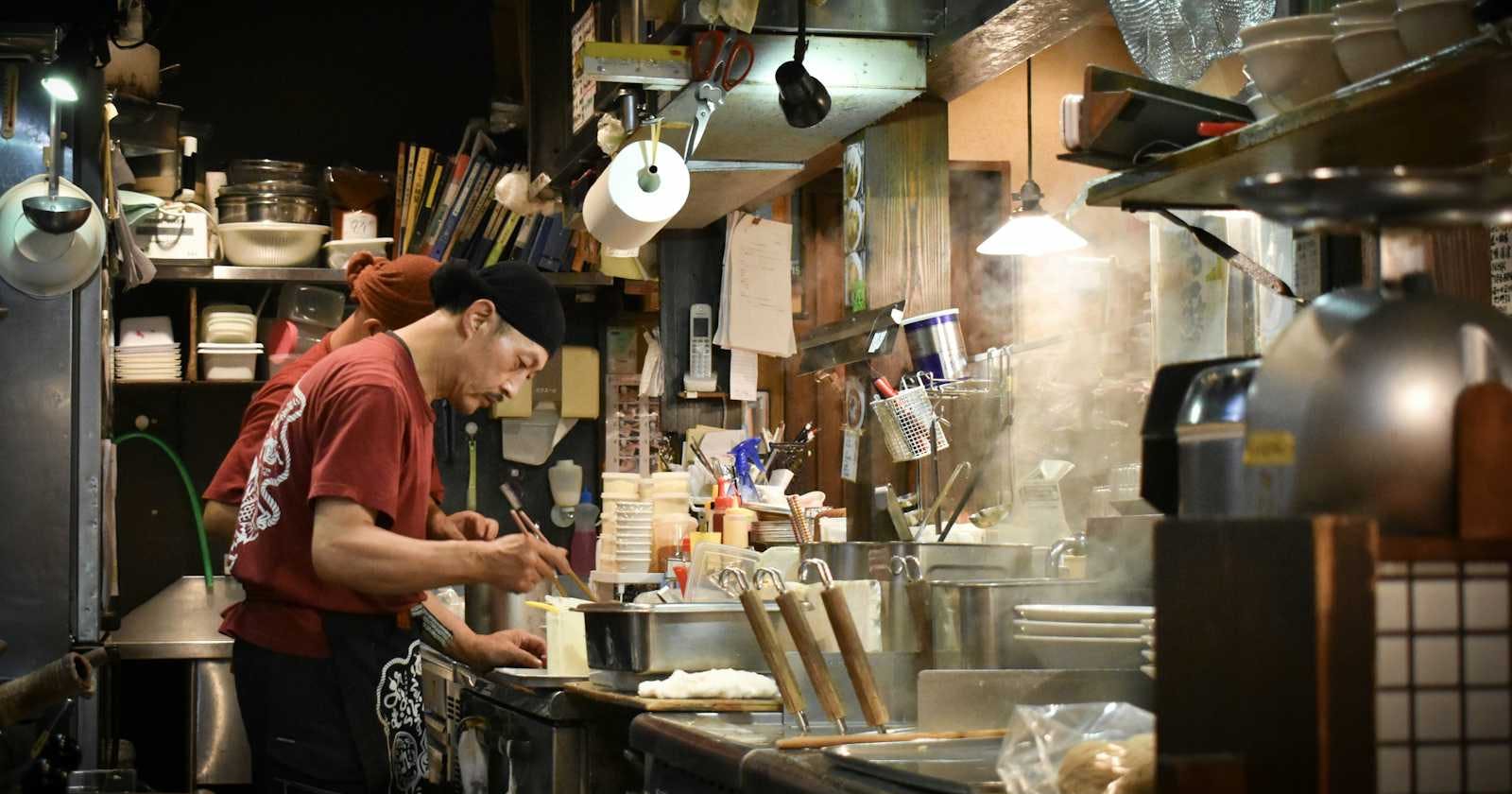
Photo by Anton Nazaretian on Unsplash
BTS: Restaurant Cook to Coder
Soft skills earned in a hard place to work
From where I sit, the Hospitality Industry is often overlooked as a “real job.” When I was growing up, people often had their first after-school jobs in Food or Retail. Since then it seems there are fewer young people in those roles. But why? There is so much value in what skills you learn working in the Hospitality Industry.
For customers in the Hospitality Industry, the stakes feel higher. This is someone’s night off, weekend away, important business dinner, first date, proposal dinner, reunion…. the list is as long as people are varied and lives are rich. In Hospitality, we catered to everyone by understanding the occasion, learning people’s preferences, and welcoming everyone with respect and dignity. I spent years working in Hospitality enjoying the creativity and the compassion we get to share with other people looking for belonging. But what does all this have to do with being a Software Engineer today?
Communication and collaboration
In job postings for office and engineering roles, you will often see today, teams are looking for communication skills and collaboration. Of course, they are! Everyone wants a cohesive team that can work together and exchange information. But how does someone prove they can do this on a resume? We write about the projects where we were able to have exchanges with co-workers, sometimes with other teams within the company, to accomplish something. It’s a tried and true statement we are probably all familiar with.
However, saying you have worked in Hospitality means having communicated and collaborated with teammates and the client! Or a possible client, with an unknown outcome and undocumented criteria for success. So we learn, in the Hospitality Industry, how to get people to feel safe and discuss what they want. Coaxing out the details for how they want it. There’s a dance of pleasantries and empathy you only learn to intuit from constant practice every day with all the unknown variables of reality.
We now have:
client-facing communication and collaboration with non-technical stakeholders and teammates for the duration of time they worked in the Hospitality Industry.
Ability to understand, analyze, and flesh out project requirements
High-pressure situations
Cooking in the Hospitality Industry means you need to know how to cook. This means more than following a recipe to completion or knowing French terms for everything. The day for a cook starts with a plan: the menu. A Chef will, with their Sous Chefs, divide the menu into stations and tasks and communicate the methods and expectations to the cooks. Let’s highlight those planning and delegation skills. The cooks will then prep everything they will need for the meal service and organize their workstations to easily accomplish each dish the same way every single time. The first one looks like the tenth, thirtieth, and last one of the night. Spotlight on the ability to take direction and independently take on a task to completion with consistency and accuracy. This all happens while managing other orders that come in and ensuring all the food for that course is ready at the same time for each table. There’s team coordination, communication, prioritizing workload, and time management.
Now let’s say you’re training a cook to do all of these things. There’s mentorship of junior teammates right there. Believe me, every cook ends up having to train somebody. The ones who train well will add to the team's cohesiveness and culture because they ensure the success of another teammate. These mentors end up learning new skills in planning or operations ideally becoming Sous Chefs, Kitchen Managers, and Chefs. I’ll tally that under “continuously learning to advance the business as a whole.”
No, not all skills are transferable from Cooking to Coding. My ability to cook a ribeye steak to medium-rare every time did not make recursion easier to learn. Nor did my ability to butcher and portion fish to pieces weighing six ounces with minimal waste make it easier to grasp relational databases. Truly, neither of those skills directly influenced anything I have done on the computer, this post notwithstanding. But they did teach me consistency and grit. I will pursue a skill or concept with the same passion for learning and improving that I did for any of my hard-earned kitchen skills. I feel like I can learn anything given the opportunity. There is a confidence in myself honed in the kitchen. Even under pressure, I can focus and make something "new" to "intuitive." My resilience and ability to remain agile have been an asset.
Turning tables
Sometimes, there are flops. One customer just didn’t like the risotto because their Nona made the best in her village, leaving a hole in their heart to fill after their grandma died. Maybe the UI wasn’t as buttery smooth for this release, though the version on the development branch is better optimized and ready to go for the next one. In any sense, at some point, we need to put the missteps behind us and learn from them. Lick our wounds and prepare for the next opportunity to make someone happy. In a restaurant, this happens every time a new customer is seated. The new opportunity is exciting because it brings a new start, a fresh canvas. All we have to do is get out of our way and reset ourselves to find the details and improve with each iteration from these tests in the field. Turning tables in a restaurant is the equivalent of a software patch or a new version release. Not everything will be perfect, but it will all be a step towards progress.

